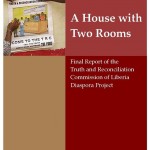Is Health Care a Human Right?
 As Congress enters the final stretch in pushing forward a health care reform bill, I have been struck by the fact that during the ongoing debate very few people seem to pose the question of whether access to health care constitutes a human right. Yet, in many countries around the world, this perspective forms the starting point of their national debates—and this consensus inevitably directs their public policy on universal health care.
As Congress enters the final stretch in pushing forward a health care reform bill, I have been struck by the fact that during the ongoing debate very few people seem to pose the question of whether access to health care constitutes a human right. Yet, in many countries around the world, this perspective forms the starting point of their national debates—and this consensus inevitably directs their public policy on universal health care.
For example, while in Peru I received a grant from the Ford Foundation to conduct research on the right to mental health for survivors of the country’s internal armed conflict. In the course of the study, I interviewed many government officials, advocates from non-governmental organizations and ordinary citizens. None of these people questioned the basic premise of my study which was that health is a human right, as enshrined in international treaties such as the 1966 International Covenant on Economic, Social and Cultural Rights (ICESCR).
Article 12 of the ICESCR provides that “The States Parties to the present Covenant recognize the right of everyone to the enjoyment of the highest attainable standard of physical and mental health.” The Covenant has been ratified by 160 countries in the world, but not the United States. The 1946 Constitution of the World Health Organization (WHO) recognizes that the right to health is a fundamental right “without distinction of race, religion, political belief, economic or social condition.” Significantly, the United Nations General Assembly (composed of representatives from 192 member countries adopted a resolution in 2003 reaffirming the right to health.


